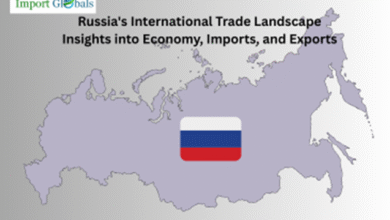Everything You Need to Know About Long-Term Visas for Thailand

Thailand, a country known for its rich cultural heritage, beautiful landscapes, and vibrant lifestyle, has become one of the most popular destinations for expats, retirees, and digital nomads alike. With its affordability, warm climate, and welcoming atmosphere, it’s no wonder that many people seek to live there for extended periods. If you’re planning to stay in Thailand for a longer duration, understanding the various long-term visa options available is crucial. In this blog, we’ll explore the types of Long term visa Thailand, how to apply, and other important things you should know before making the move.
Types of Long-Term Visas for Thailand
When it comes to staying in Thailand for extended periods, there are several visa options to choose from. Each type of visa has its specific requirements, so it’s important to determine which one suits your personal situation best.
1. Tourist Visa (Extended Stay)
While a standard tourist visa is typically valid for up to 60 days, travelers often choose to extend their stay beyond this period. Thailand offers an option to extend your tourist visa for an additional 30 days. However, this is still a short-term solution and may not be suitable for those looking for a long-term stay.
If you intend to stay for longer periods, it’s best to look into other visa categories. Some travelers also use multiple entries to extend their stays. However, immigration officers are becoming more cautious about issuing tourist visas for long stays, so this approach is not as reliable as it once was.
2. Non-Immigrant Visas
A Non-Immigrant Visa is one of the most popular long-term visa options for those planning to stay in Thailand. This visa is suitable for individuals who want to live, work, or study in Thailand. Non-Immigrant Visas come in different categories, depending on your purpose of stay.
-
Non-Immigrant “O” Visa – The Non-Immigrant “O” Visa is typically for retirees, individuals with Thai spouses, or those visiting family members. The long-term stay options for this visa are ideal for people looking to retire in Thailand.
-
Non-Immigrant “B” Visa – The Non-Immigrant “B” Visa is designed for individuals who wish to work in Thailand. This can include employees of Thai companies or foreign business owners.
-
Non-Immigrant “ED” Visa – This visa is for those coming to Thailand to study. If you plan to take part in a Thai language course, attend a university, or enroll in another educational program, the Non-Immigrant “ED” Visa is the one to apply for.
3. Retirement Visa (Non-Immigrant O-A Visa)
Thailand is known for being a retirement haven, and the Retirement Visa is one of the most popular choices for long-term stays. The Non-Immigrant O-A Visa, often referred to as the Retirement Visa, is designed for those aged 50 or older who want to retire in Thailand.
To be eligible for the Retirement Visa, applicants must meet the following requirements:
-
Be at least 50 years old
-
Have proof of a monthly income of at least 65,000 THB (approximately $2,000 USD), or a bank balance of at least 800,000 THB (around $24,000 USD) in a Thai bank account
-
Provide a health certificate to confirm that you don’t have any serious diseases, such as tuberculosis, leprosy, or drug addiction
-
Undergo a criminal background check from your home country
This visa allows you to stay in Thailand for one year, and it is renewable annually, provided you meet the financial and health requirements.
4. Smart Visa
For digital nomads, tech entrepreneurs, and foreign workers, the Smart Visa is an excellent option. Introduced in 2018, the Smart Visa is a long-term visa aimed at promoting talent and investment in the tech and innovation sectors. This visa is designed for professionals in industries such as technology, digital services, and advanced manufacturing.
The Smart Visa offers several categories:
-
Smart “T” (Talent) – For highly skilled workers and researchers in fields such as technology and science.
-
Smart “I” (Investor) – For individuals who invest in high-tech industries.
-
Smart “E” (Entrepreneur) – For entrepreneurs establishing new businesses in Thailand.
-
Smart “S” (Startup) – For startup founders or employees in qualifying industries.
The Smart Visa is valid for up to four years and offers several benefits, including no work permit requirements and easier re-entry into Thailand. It is an ideal choice for those looking to contribute to Thailand’s growing tech sector.
5. Marriage Visa (Non-Immigrant O Visa)
If you’re married to a Thai national, you may qualify for a Marriage Visa. This visa falls under the Non-Immigrant O category and allows you to stay in Thailand for an extended period as long as you continue to meet the necessary financial and other requirements.
To apply for a Marriage Visa, you need to show proof of a legitimate marriage and meet the following financial criteria:
-
A monthly income of at least 40,000 THB, or
-
A bank balance of 400,000 THB in a Thai bank account.
The Marriage Visa is initially valid for 90 days but can be extended to one year and renewed annually as long as you continue to meet the requirements.
How to Apply for a Long-Term Visa
Applying for a long-term visa in Thailand is relatively straightforward, but it requires a bit of preparation. The process typically involves the following steps:
-
Choose Your Visa Type – Determine which long-term visa best suits your needs based on your reasons for staying in Thailand.
-
Prepare Documentation – Gather the necessary documents. These may include proof of income or savings, a valid passport, health checks, criminal background checks, and additional documents specific to your visa type.
-
Submit Your Application – You can apply for most long-term visas at a Thai embassy or consulate in your home country. Some visas, like the Retirement Visa, may also allow you to apply in Thailand.
-
Attend an Interview (if necessary) – Some visa types, such as the Smart Visa, may require an interview with Thai immigration officials.
-
Wait for Approval – Processing times vary depending on the visa type, but they generally take a few weeks to a couple of months.
Important Considerations
-
Visa Extensions: Some long-term visas, like the Retirement Visa, can be extended annually. However, make sure you meet the requirements before applying for an extension. Staying beyond your visa’s validity can result in fines or deportation.
-
Re-Entry Permits: If you plan to leave Thailand and re-enter during your long-term visa’s validity, you may need to apply for a re-entry permit.
-
Health Insurance: For certain long-term visas, like the Retirement Visa, applicants may need to provide proof of health insurance that covers potential medical expenses while in Thailand.
Final Thoughts
Living in Thailand on a long-term visa can be a rewarding experience, but it’s important to understand the visa requirements and choose the right option for your personal situation. Whether you’re retiring, working remotely, or pursuing other ventures, Thailand offers a range of long-term visa opportunities. Always check with the Thai embassy or consulate for the most up-to-date information, as visa regulations can change frequently.
By understanding the process and staying on top of your visa obligations, you can enjoy a smooth and enjoyable stay in the Land of Smiles.



